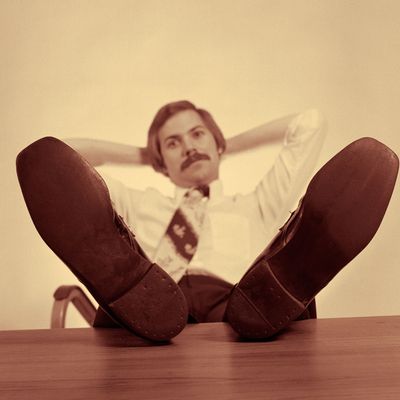
It’s well established that intrinsic motivation promotes long-term performance and protects against burnout. Whether it’s on the playing field or in the workplace, the more that your drive comes from within and the more you perceive your work as an end in itself — that is, you enjoy what you’re doing, not just the external rewards and recognition your work brings — the better off you’ll be. But that doesn’t mean intrinsic motivation makes you bulletproof. Even if you love your work — or perhaps because you love your work — if you push too hard without appropriate rest and recovery you’re bound to stagnate.
A close friend and collaborator of mine, Steve Magness, is coach to a stable of the world’s best runners. He often says that “the nice part about coaching intrinsically motivated and super driven people is that I rarely, if ever, have to push them forward. That’s not the hard part. The hard part is holding them back.” Without Steve putting on the brakes, his athletes would run themselves into the ground — and not in spite of their intrinsic motivation, but because of it. If you are into what you’re doing and you’re dying to get better the natural inclination is to keep pushing. Unfortunately, even if that pushing is borne out of all the right internal reasons, eventually the body gets tired. Too many miles with too little rest results in what exercise scientists call overtraining syndrome: a decrease in performance in conjunction with an increase in illness, injury, and eventually apathy.
Although an overworked brain may not literally break down like an overworked body, it too functions better with rest and recovery. Consider a study out of the University of York and the University of Florida that found despite spending the vast majority of our waking hours in effortful thought, more than 40 percent of our creative ideas come during breaks, when we allow our minds to wander or turn off altogether. Other research published in the Journal of Organizational Behavior and Occupational and Organizational Psychology shows that workplace performance improves following periods of rest and recovery, even among those who love their work.
This was a major theme in the reporting for my new book, Peak Performance. World-class performers across diverse fields — all of whom love their work and are as intrinsically motivated as anyone — literally force themselves to rest. They do so with deliberate intention for the benefit of their work.
• David Goss, the late mathematician who pioneered number theory — a unique mathematical language that makes otherwise unsolvable problems solvable — reports that “all these ideas would come to me via my subconscious — when I wasn’t working but instead on the exercise bike or just walking around. Some of these ideas were, in fact, crazy. But others turned out to be not so crazy at all. The subconscious mind is a powerful thing. It’s almost like the sole reason you do the work is to set the stage for what happens when you step away.”
• Lin-Manuel Miranda, MacArthur genius and creator of the blockbuster musical Hamilton, puts it like this: “A good idea doesn’t come when you’re doing a million things. The good idea comes in the moment of rest. It comes in the shower. It comes when you’re doodling or playing trains with your son. It’s when your mind is on the other side of things.”
• Emil Alzamora, internationally acclaimed sculptor, told me “there are many times when I want to — and could — stay at the studio forever. But I know if I want to make good work for a long time, I need to step away.”
This is to say nothing of the massive importance of sleep. If you really love your work and want to do a good job at it, the last thing you should do is sacrifice sleep. In the early 2000s, then-groundbreaking research out of Harvard University found that it is during sleep that you retain, consolidate, store, and connect information. In other words, your mind doesn’t grow and make leaps when you are at work, but rather when you are at rest.
Even so, it can be excruciatingly hard to step away from your work, especially if you love it. Steve’s runners aren’t the only folks who struggle to hold back. Ernest Hemingway said as difficult as writing could be, it was “the wait until the next day,” when he forced himself to rest, that was his greatest challenge. In his memoir, On Writing, Stephen King writes, “For me, not working is the real work.”
Tucked away in King’s quote is a pearl of wisdom. If you consider not working a part of the work, you’re more likely to not work. This sentiment was common across much of the reporting I did for my book. The world’s best musicians, athletes, artists, intellectuals, and entrepreneurs tend to consider rest an essential part of their jobs. They think about rest not as being something that is passive (i.e., nothing is happening, you’re wasting time) but rather as being something that is active (i.e., your brain — or if you’re an athlete, your body — is growing and getting better), and thus, they’re far more liable to respect it. This draws upon something that behavioral economists call the commission bias: an innate human tendency toward action over inaction.
This isn’t to say that you should regularly slouch off. But it does mean that even if you’re in the throes of work you love, you should still prioritize eight hours of sleep, some form of regular exercise, and a few short breaks every day. Trust that not working is integral to doing good, sustainable work. Not working is the work.
Brad Stulberg writes about health and the science of human performance. His new book is Peak Performance: Elevate Your Game, Avoid Burnout, and Thrive With the New Science of Success. Follow him on Twitter @Bstulberg.




